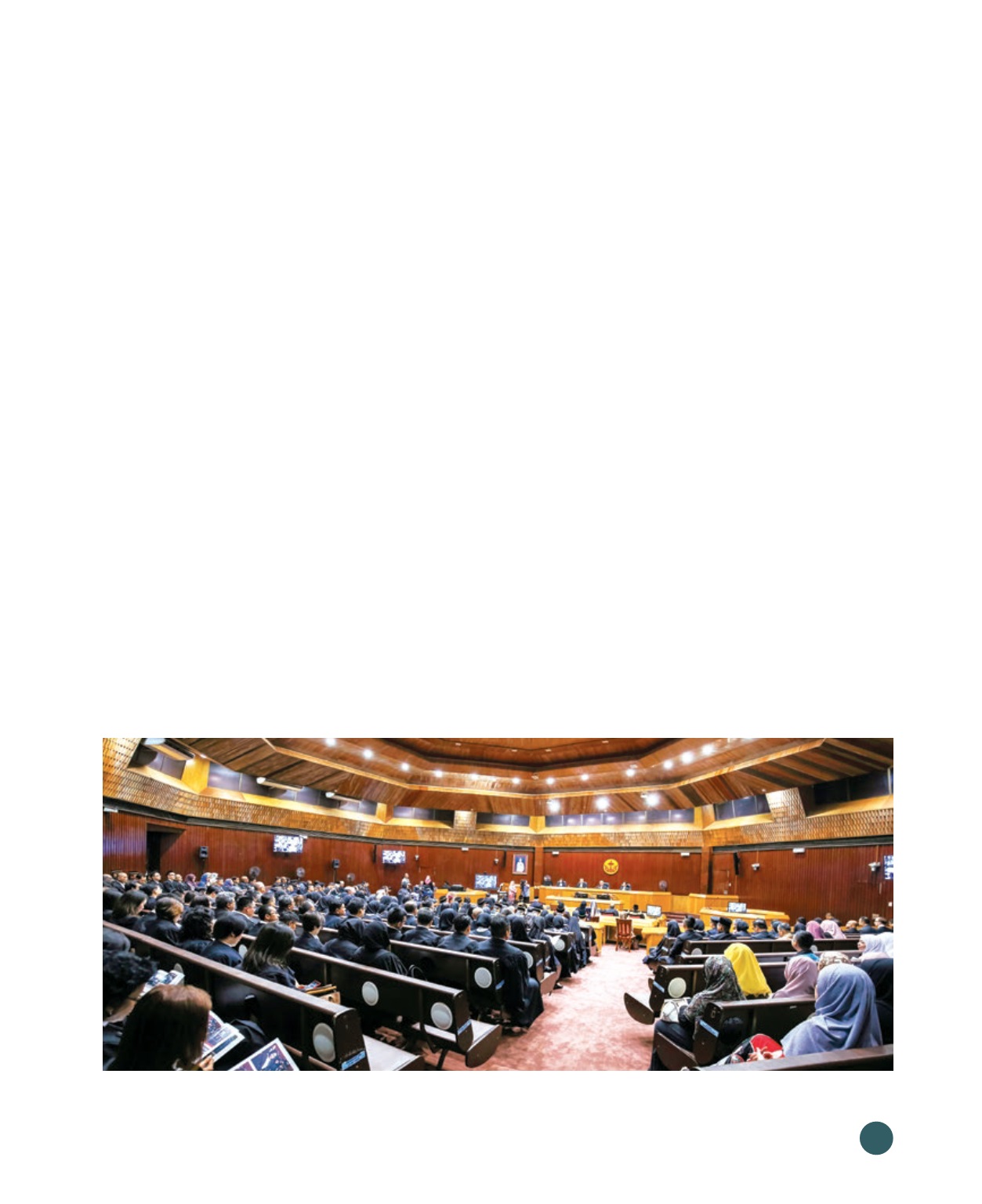

203
VISITOR INFORMATION
Brunei’s legal system is unique as it implements the English Common
Law and the Islam-ordained Syariah Law simultaneously to preside
over the country’s residents. Both laws, overseen by the Supreme Court,
coexist to administer a system that is well-rounded and fair towards
the nation.
The Attorney General’s Chambers is responsible for overseeing the
execution of the laws and enacting any amendments to existing acts.
The Attorney General’s Chambers revise laws in line with changes of
law pertaining to Intellectual Property Rights, Fisheries Boundaries,
Consumer Rights and Syariah.
To ensure a thorough and meticulous implementation of the Syariah
Law, a group of specialists spearheaded by Syar’ie Chief Justice
oversee the process.
JUDICIAL SYSTEM
The Legislative Council (LegCo) is Brunei’s Parliament which acts as the
official forum for airing and resolving issues or problems within the country.
The Council was first established in 1959 and held a total of 32 meetings
until it was frozen in 1984, after the country resumed Independence.
Brunei had no legislature until September 2004, when the LegCo was
revived and continued to deal with internal issues and concerns until 2016.
On August 11, 2016, the Department of Councils of State under the Prime
Minister’s Office announced the dissolution of the LegCo.
On January 12, 2017, HisMajesty Sultan Haji Hassanal BolkiahMu’izzaddin
Waddaulah ibni Al-Marhum Sultan Haji Omar ‘Ali Saifuddien Sa’adul Khairi
Waddien, Sultan and Yang Di-Pertuan of Brunei Darussalam commanded
the reestablishment of LegCo with new members sworn in on March 1,
2017. The newmembers received attention for being predominantly young,
placing emphasis on LegCo’s new angle of youth involvement, invoking
optimism from the local community.
The 2017 Legislative Council session saw Brunei’s national budget lowered
by BND300 million to BND5.3 billion for the 2017-2018 fiscal year.
LEGISLATIVE COUNCIL









